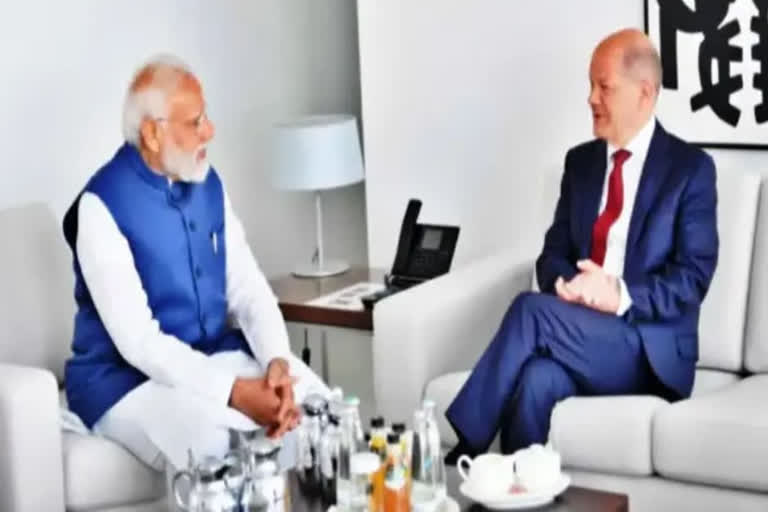New Delhi: Prime Minister Narendra Modi will be taking part in the G7 leader's summit next month happening under the German presidency. The summit will take place from 26 to 28 June 2022 at Schloss Elmau in the Bavarian Alps, Germany.
Professor Harsh V Pant, foreign policy expert and Director, of Research at the Observer Research Foundation (ORF) Delhi opined that 'India's participation in G7 is taken as an important signal to the world that India is a very important stakeholder in global conversations and those conversations can be taken forward with India's active participation and that's what Germany's invitation to India underscores'.
"I don't think, Germany could have avoided India in any case and Germany's foreign policy is evolving in a direction which calls for a strong relationship with India in the Indo- Pacific and beyond, he added.
"While there may be a debate in Berlin about India's stand on Ukraine, by and large, the message from all European partners including the European Union is that India has to be brought on board, India is an important partner and Ukraine might be a temporary phenomenon where there are differences but those differences should not clout the strategic component of the relationship of the engagement", added Prof Pant.
"We have seen how intense and how successful the visits of the British PM and EU Prez Ursula have been in the recent past. So there is no reason why Germany would go on a different track on this question", Prof Pant told ETV Bharat.
The summit comes amid the ongoing Russian invasion of Ukraine. India-Germany ties have reached new heights in recent years. And Germany's invitation to India to attend the G7 leader's summit is indicative of the fact that Germany attaches great importance to India and it is an acknowledgement of the existing strategic partnership between the two nations.
Germany is an important partner for India in Europe and the ties have significantly grown with mutual trust and understanding. Meanwhile, India will be taking part in the G7 development ministers' meeting in Berlin, today and Thursday (May 18th and 19th). The meeting is being hosted by Germany's Federal Minister for Economic Cooperation and Development Svenja Schulze.
The agenda of the meeting includes infrastructure, climate, energy and development partnerships for climate neutrality, and access to vaccines among others. The primary outcome of the meeting will be the launch of the global alliance on food security. The launch assumes significance even as the Russian invasion of Ukraine impacts the global supply chain and pushes the prices of commodities high.
